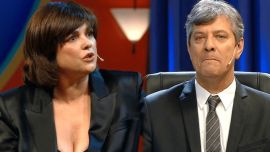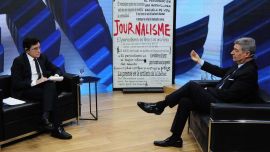The Kirchnerite wing of the ruling Frente de Todos coalition has opened up a new conflict with Economy Minister Martín Guzmán over fresh funds from the International Monetary Fund (IMF).
Next week, the Senate Budget and Finance Committee plans to debate a draft resolution pertaining to the IMF’s special drawing rights (SDRs), supplementary foreign exchange reserve assets available to member organisations.
The leadership of the IMF, which plans to allocate fresh funds in August, recently agreed to support a new SDR allocation worth US$650 billion, the largest in its history. That would effectively mean more assets are available to member nations, should they wish to use them. Some experts have predicted Argentina may gain access to an additional US$4.35 billion under the move,
In what seems to be a barely disguised message to Guzmán’s team, the Kirchnerite camp will next week call on the Economy Ministry “to finance the implementation of public policies aimed at solving the serious problems of Argentine society derived from the Covid-19 pandemic."
The draft resolution, which expresses concern over “alarming” poverty data, bears the signature of several Kirchnerite leaders in the upper house, which is headed by Vice-President Cristina Fernández de Kirchner. It is being promoted by Oscar Parrilli, one of CFK’s key allies, and will be debated on Thursday.
Underlining their objections to the funds being used to pay off international debt, the text also explicitly calls for no payments to be made “for capital, interest or expenses,” or to “international financial organisations and/or other countries included in the Paris Club.” Government officials have previously hinted the new IMF funds could be used to cover debt payments and maturities.
Speculation
Speculation over Guzmán’s future in office has surged over the past two weeks, after his bid to dump Energy Undersecretary Federico Basualdo at the close of April was frustrated, despite the minister counting on the support of President Alberto Fernández.
The speculation has also damaged the wider government, exposing infighting within Frente de Todos. Guzmán, a star minister, ran into considerable “friendly fire” from factions within Argentina’s ruling coalition, especially from La Cámpora militant grouping and the Instituto Patria think tank.
While government sources believe it likely that Basualdo will be eased into some other post in the future, they also admit that the clash will leave behind some very open wounds – it is impossible for an undersecretary to resist a minister without the latter losing face. Meanwhile overseas markets are taking note of the strain.
“Guzmán’s role had been devalued” and “everything indicates that this fight does not end here,” said one member of the government’s economic team, speaking on condition of anonymity. The minister’s entourage also admits that the accelerated erosion is starting to wear out the minister, who has already hinted twice at resignation in recent times.
Guzmán, who successfully restructured more than US$65 billion in foreign debt but has been stalled in his attempts to secure a new financing programme with the International Monetary Fund, has already been pushed to his limits. He had already been wrong-footed last September when capital controls were carried to extreme limits, just two days after he said there would be no more restrictions on money markets.
This latest bout of turmoil came to head in the last hours of April. Last Friday, hours after President Fernández had announced the new restrictions against the second wave of Covid-19, Guzmán requested the resignation of Basualdo. The third-line official had failed to design segmented increases according to income groups, thus reducing subsidies.
On May Day an uneasy compromise was reached. Both a weakened Guzmán and Basualdo would be staying put, but only if the latter’s ENRE regulatory agency formalised an increase (without specifying that it would be the “only” increase this year, as desired by Kirchnerism).
Eventually, the government was able to announce that electricity billing would be increased nine percent this month, with ENRE’s approval.
The debate over utilities, however, is far from over. At an event on Friday, Guzmán called on the ruling coalition to be "self-critical" on the issue.
"An important part of our budget is spent. We must be self-critical in this regard," he said, arguing that the current scheme was "pro-rich" and subsidising electricity and gas consumption for those who do not require it.
– TIMES/PERFIL





















Comments